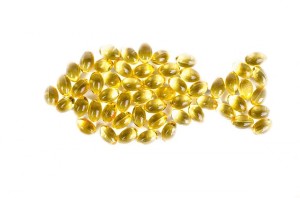by Pathways Magazine – ICPA.org:
Early Use of ADHD Drug Alters Brain
Ritalin use in preteen children may lead to depression later in life. Ritalin and cocaine have different effects on humans. But their effects on the brain are very similar. When given to preteen rats, both drugs cause long-term changes in behavior.
One of the changes seems good. Early exposure to Ritalin makes rats less responsive to the rewarding effects of cocaine. But that’s not all good. It might mean that the drug short-circuits the brain’s reward system. That would make it difficult to experience pleasure—a “hallmark symptom of depression,” Carlezon and colleagues note.
The other change seems all bad. Early exposure to Ritalin increases rats’ depressive-like responses in a stress test. “These experiments suggest that preadolescent exposure to [Ritalin] in rats causes numerous complex behavioral adaptations, each of which endures into adulthood,” Carlezon and colleagues conclude. “This work highlights the importance of a more thorough understanding of the enduring neurobiological effects of juvenile exposure to psychotropic drugs.”
my.webmd.com/content/article/78/95700.htm?lastselectedguid={5FE84E90 -BC77-4056-A91C-9531713CA348}
Consider Fish Oil Over Ritalin
Children with attention-deficit hyperactivity disorder (ADHD) have problems paying attention, listening to instructions, and completing tasks; they also fidget and squirm, are hyperactive, blurt out answers, and interrupt others.
It is conservatively estimated that 3-5% of the schoolage population has ADHD. Although drugs, such as Ritalin, are frequently used to treat ADHD, they are fraught with complications. Disadvantages include possible side effects, including decreased appetite and growth, insomnia, increased irritability, and rebound hyperactivity when the drug wears off.
One would not expect to find that a single cause or even a handful of factors could explain why ADHD appears to be so rampant in our society. Because it is accepted that both genetic and environmental factors play a role in ADHD, many other factors—both intrinsic and extrinsic— could influence an individual’s fatty acid status.
Inefficient Conversion of ALA (Flax Oil) To EPA And DHA
A possible cause for the low fish oil status of the ADHD children may be impaired conversion of the fatty acid precursors LA and ALA to their longer and more highly unsaturated products, such as EPA and DHA (fish oil fats).
It appears that children with ADHD just are not able to chemically convert the plant omega-3, ALA to fish oil very well. The problem is further worsened when omega-6 fats are consumed and the ideal omega-6:3 ratio of 1:1, progresses to the typical standard American ratio of 15:1. Many of these children have ratios which are even worse and can be as high as 50:1.
This study provides the research evidence supporting the use of the omega-3 fats found in fish oils to effectively address the underlying deficiency that is present in most of these children and appears to be contributing to the ADHD.
Two books worth having for your lending libraries:
Smart Fats: How Dietary Fats and Oils Affect Mental, Physical and Emotional Intelligence
by Michael A. Schmidt
Omega 3 Connection
by Dr. Stoll
Article originally posted at ICPA.org.
